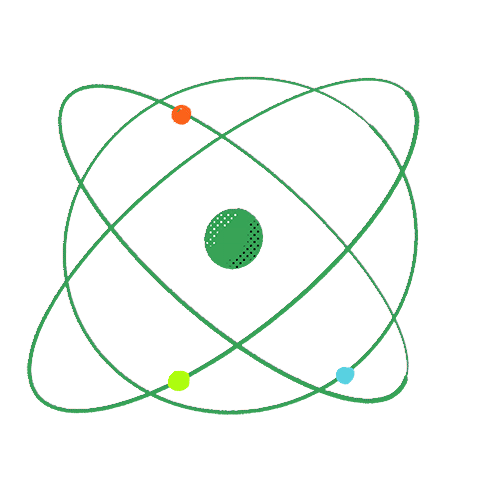
Animal cell
Usually, you need a microscope to study an animal cell. Here we have built a larger model! How does it differ from the plant cell?

CellSkapt is our exhibition about the human body! Here, everyone can recognise themselves, and at the same time be fascinated by how remarkable us humans are with our different qualities, knowledge and needs.
Explore how your intestines work, what your blood veins look like, how many times we fart on average every day, and much more. The exhibition is incredibly varied, from analogue experiments and traditional anatomic models to digital play surfaces and visualisations.




Usually, you need a microscope to study an animal cell. Here we have built a larger model! How does it differ from the plant cell?



Let's do a virtual autopsy! On our visualisation screen, you can study what the body looks like on the inside of humans and animals.



Why does the snot turn green when you are sick? What does a fart consist of? And if you start bleeding, what happens when the wound heals?


This model shows the vertebrae of the neck and the eight areas of the brain. It also shows the network of nerves and arteries.


You have probably seen when a baby gets food from its mother's breasts. But what happens to the breasts when a person is pregnant?


These models are the skulls of our ancestors. They are from archaeological finds from prehistoric people, those who came before us.


Did you know that the skin is our largest organ? It protects the body from harm and from drying out. And it can change colour – when we are embarrassed for example.


A death mask is a cast of a person's face that is made after they have died, to preserve the memory of the deceased.


In this experiment you can experience various sight defects. These spectacles give an impression of having a cataract or cloudy lens.


What happens inside the body after you eat? Learn all about the digestive system and what nutrients the body absorbs from food.


What is your eye colour? Regardless of which it is determined by your DNA, which carries your genes.


In Experimenta, we have added a layer of computer games over the top of our experiments. Try it out and collect points together!


Let's get hooked! Hook your finger inside the loop and pull it towards you. How strong are you?


Have you heard of fingerprints, the patterns in the skin at the tips of our fingers? No-one has the same fingerprints as you, but what are they for?


All feet look different! One difference can be what the foot arches look like. Here, you can study three types of feet.


Have you ever seen your feet from below? Mirror your feet and examine how you stand! Are the loads equal? What happens when you stand on one leg?


The taste buds of the tongue allow us to feel different tastes when we eat. But what happens in the body when we separate sweet from salt? The model shows the tongue and its underlying muscles in cross section.


Our amazing skull helps us not to lose face – literally! It supports the face and protects the brain.


Study how the foetus develops right up until birth. The models are partially "hands on", and can be investigated together.


There are micro-organisms everywhere. Did you know that there are ten times more micro-organisms than the number of cells in the human body?


What happens inside the vagina when a woman is sexually aroused, and how does the menstrual cycle work?


What happens to the penis when a man is sexually aroused, and how many sperms are there in a teaspoon of sperm?


We use our hands a lot. They can both handle tiny little things and grab big things. Therefore, the hand consists of many different parts.


Squeeze the handle, using one hand. How strong are you? Is it possible to improve your results?


Sometimes you just want to hang out for a while! Grab hold of the pole and hang on for as long as you can. Can you improve your results?


Test your hearing with the audiometer! It measures a property known as the "hearing threshold", i.e. the lower limit that you can hear at a certain frequency.


Have a look inside the lungs! What happens when the oxygen you inhale is absorbed by the blood, and what does it feel to touch a lung?



The I Ching is a hexagram in the ancient Chinese text of the same name. "I Ching" or Yi Jing means "Book of Changes". The book is an important work for the Taoism and Confucianism religions. The text has been around in its present form since 200 BCE, but may have been in use much longer.


How is your sight? This test uses a perfectly safe laser to determine whether you have deficient sight. Look at the dots with one eye at a time and see what happens!


How tall are you? Is the value given in your passport correct? Have you grown since the last time you got measured?


Are you good at remembering things? No? Don't worry – research shows that it is a matter of practice!


Have you got it right out to your fingertips? Close your eyes, use the joystick and use your fingertips to feel whether you can put the round metal disk into such a position that you no longer feel the edge.


Guiding the hand when what you see is a mirror image is harder than you might think. Try following the lines on the screen to form a simple shape.


How is snot made? Why do we have nose hair? And how can we smell different smells? The model shows our fantastic nose!


We all poop, but what do your turds really consist of? And what determines whether they are loose or hard?


When the muscles of the pelvis have been removed it’s easy to see the size of the opening at the bottom. What is the difference between men and women?


You probably know how it feels when you really, really need to pee. What happens in the body when you get that feeling?


A plant cell is slightly more advanced than an animal cell – it has a higher number of organelles and is also larger.


Do you want to experience what it’s like to be seven months pregnant? Put on a pregnancy suit and see what it feels like!


Investigate how fast your pulse is beating, and how much oxygen there is in your blood. The amount is usually over 90 percent if you're healthy.



What would we need to "make" a whole human being? All the ingredients of the human body are listed here – a recipe for a human!


Gently tap the reflex hammer on the knee-cap tendon just below the knee-cap. What happens?


Challenge a friend! Who is best at consuming calories? Or try to determine how much work you have to do to burn of certain foods.


Ready, steady, run! How fast can you accelerate? Try running in different ways to improve your results.


Can you scream as loudly as an animal? The barrel has a microphone connected to an amplifier. The intensity of the sound produced is measured in decibels and displayed as a column of lamps.


This is the same test as the one used by an optician. Stand 5 metres away from the test sheet, cover one eye and read with the other. How far down can you read?


The skeleton is is our innermost constructional element. Our rattling bones have historically been associated with death, but we couldn’t live without it!


Look up – and check out our skeleton chandelier! It is a replica of a real chandelier found in a church in the Czech village of Sedlec.


In this experiment, you can challenge yourself and your body! Do you have a good balance? Is it possible to improve your results? Can you keep your balance longer by using your body's position, strength, speed and stamina?


Train like the Swedish astronauts Christer Fuglesang and Marcus Wandt! Space Ball was built to train astronauts to get used to spinning around without becoming nauseous. Can you manage it?


When a part of the body breaks, it can sometimes be replaced by a spare. The model shows some examples of prosthetics that can be surgically implanted.


This experiment is to challenge yourself and your body. How steady are your hands? How can you improve your result by using your body's position, your strength, speed and stamina?


What does the inside the human brain look like? In the "brain puzzle", you'll find the cerebrum, diencephalon, cerebellum, and the medulla oblongata.



Come inside the ear! Here you can get lost in the semicircular canals, play with bones that look like hammers, and study tissues that help you to balance.


Our eyes enable us to see the world, but how do they do that? Take the model apart to see the tissues that are involved.


In this experiment, you can challenge yourself and your body! How fast are your reflexes? Is it possible to improve your results? Can you react faster by using your body's position, strength, speed and stamina?


The heart muscle is the size of a fist, and an incredibly efficient pump! It pumps around 300 litres of blood around your body every hour. That's around 2.7 million litres a year!



Try our microscope and have a closer look on tiny little things. What does your pinky finger nail look like up close?


Few things say "strength" as loudly as muscles. But can you be strong in other ways, even if you don't have large muscles?


Why do your pupils shrink in bright sunlight, and get bigger when you are in a dark room?


A human being’s spine is more flexible in some places than in others. Where is it most flexible? Test the model and then on yourself!


Listen to the noises of the body with the stethoscope. The body gurgles, bubbles and pounds in a never-ending cacophony. Listen to your heart – what is it saying?


How many teeth do you have in your mouth, and how many more will you get? What does the tooth look like under the gums?


This is a different kind of puzzle – can you put all the organs in their right places? They have evolved such that they can be squeezed together while still having a very large surface area. Why is this?


This is a different kind of puzzle – can you put all the organs in their right places? They have evolved such that they can be squeezed together while still having a very large surface area. Why is this?


One, two, three – pull! Here, you can challenge yourself and your body. How strong are you? Is it possible to improve your results?


Roll up your sleeve and have a closer look at your viens – the thin blood vessels that transport blood to the heart.


Find your inner circus artist! Challenge your ability to balance and see if you can walk on a tight rope. Feel free to wobble!


What is it like to move around without using your legs? What everyday obstacals do you encounter in the Wheelchair course?


Here you can see what different body parts look like in an X-ray picture. Can you find all the fractures?


Get in touch with your inner zombie! This experiment shows a model for the weight and consistency of the human brain. The bag contains a silicone mixture.




